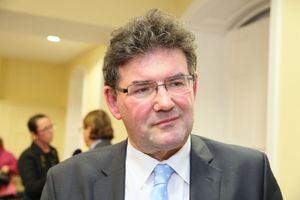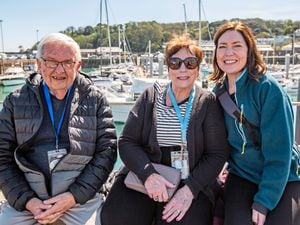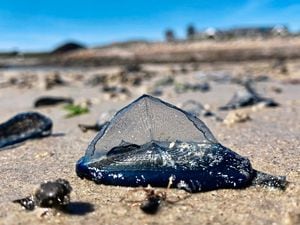Immuno Biotech staff ‘were ‘brainwashed’ claims defence
IMMUNO BIOTECH staff were brainwashed by David Noakes, the Royal Court heard yesterday as two former employees were handed suspended prison sentences.

Former company office manager Samanta MacPane, 32, previously known as Beate Keisa, pleaded guilty to one count of money laundering and was sentenced to nine months in prison, suspended for two years.
Peter Dawson-Ball, 65, was the financial controller for the company and faced two counts of acquiring or using proceeds of crime, as well as being jointly charged with MacPane for money laundering.
He denied the charges but was found guilty at a trial earlier this year.
He was sentenced to 180 hours’ community service for the money laundering, and 15 months in prison, suspended for two years, for the other matters.
Former Immuno Biotech owner David Noakes is currently serving 15 months in prison in the UK for money laundering and manufacturing, supplying and selling an unlicensed medicine – GcMAF.
MacPane’s defence advocate, Catherine Fooks, described Noakes as a zealot who was brainwashing his staff and this resulted in her client’s offending.
‘He ran that company with a rod of iron and there was no doubt this was his business, his baby,’ she said.
‘He demanded absolute obedience from everyone in that company.’
Unusually, MacPane addressed the court and said she took responsibility for what she had done.
‘If I could turn back time I would never have got involved with David Noakes or Immuno Biotech,’ she said.
Defence advocate Mark Dunster, representing Dawson-Ball, said his client had not been living a jet-set lifestyle with the proceeds of the criminal money, while David Noakes had.
Judge Russell Finch said while it was clear that Noakes was not a nice person, he was not convinced that MacPane was a ‘shrinking violet’ and he noted that Dawson-Ball still did not accept what he had done.
He noted that both defendants had played a part in selling the unlicensed medicines, which it was claimed cured an array of conditions, including cancer.
‘People, often in very difficult circumstances, were taken in and exploited,’ he said.
In handing down the sentences, he took into account the degree of cunning and planning used by the defendants and how the offending was over a long period of more than a year.
He also considered how the activity would affect Guernsey’s reputation as a finance centre.





